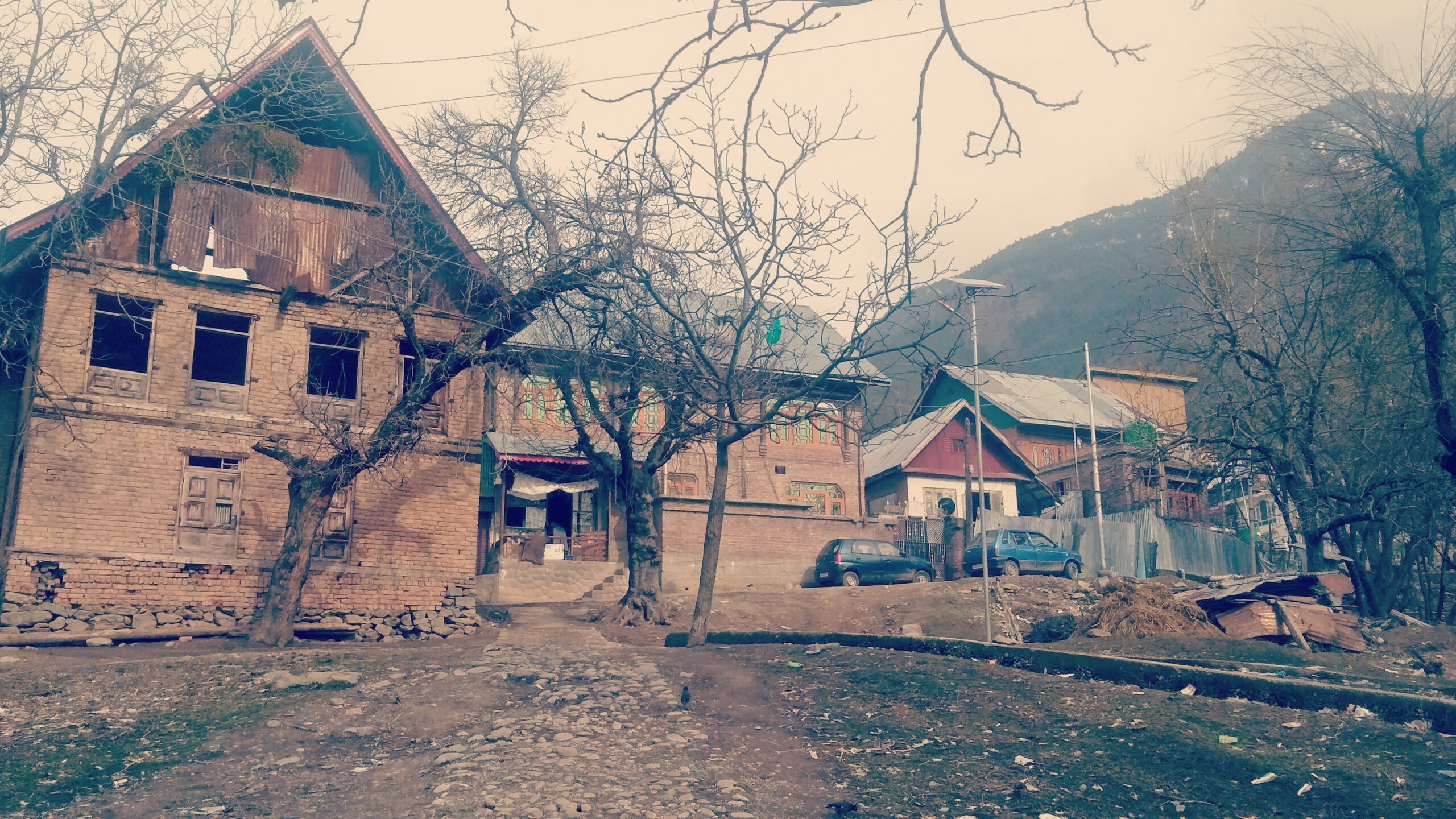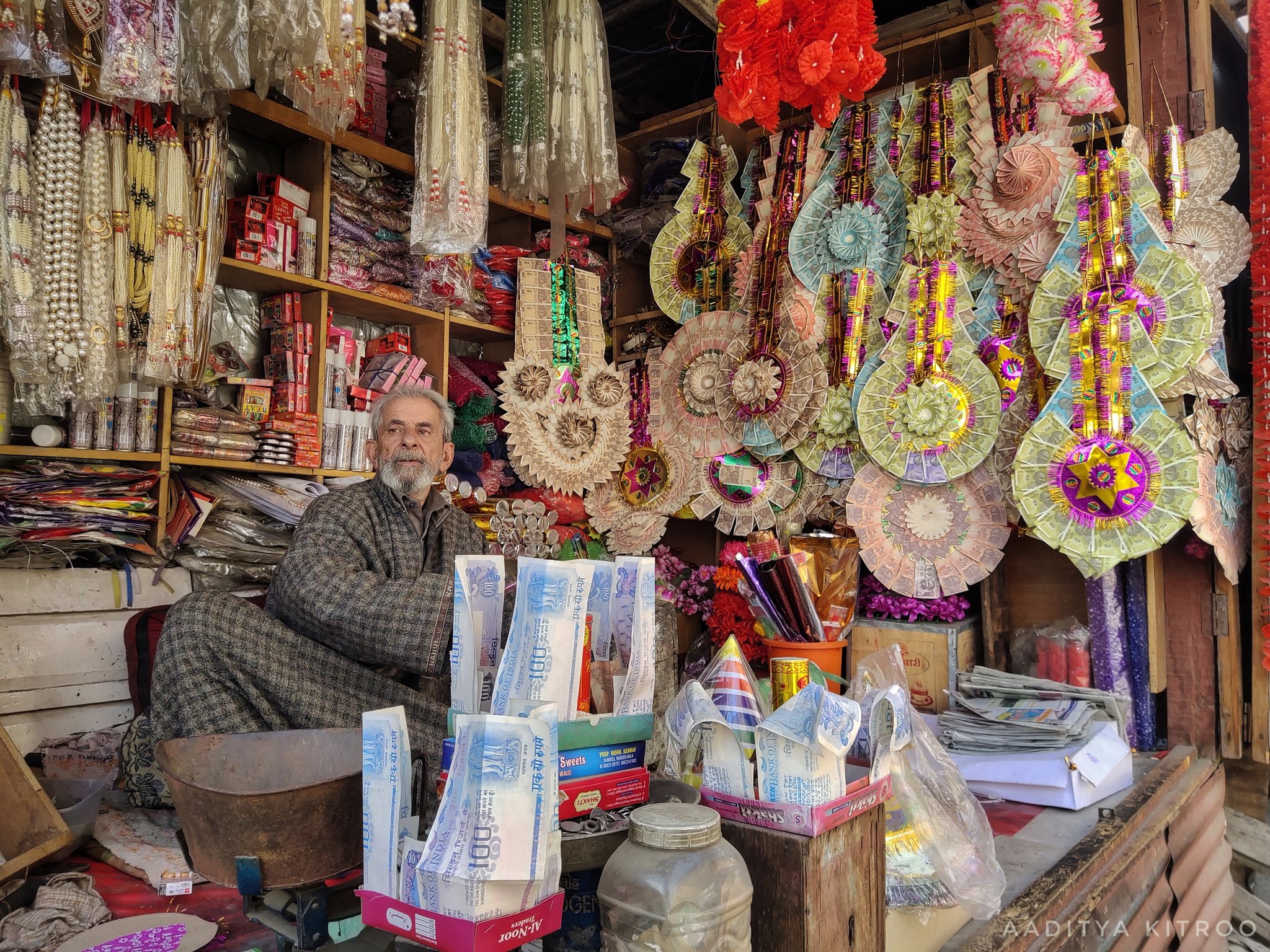Ganderbal, Jammu & Kashmir
Badaghar Babe Wayil is a small village of 1,000-odd people who are involved in walnut cultivation and sale of pashmina shawls. Thirty years ago, this village, about 25 kilometres from Srinagar, took a landmark decision and has stood by it.
There is a complete ban on dowry in Badaghar Babe Wayil of Ganderbal district and all the villagers have pledged to neither receive nor give dowry by signing a document on a stamp paper.
Much before the COVID-19 pandemic, which has forced the big fat Indian weddings to become small and simple affairs, weddings in this village of Jammu & Kashmir have been an austere affair for the past three decades.
The villagers drew up a no-dowry document 30 years ago on a stamp paper that was signed by the Imam and other elders and key people in the village. The document also stipulates that the groom’s family should not demand anything from the bride’s side. Instead, the boy’s side gifts the bride Rs 50,000. This includes Rs 20,000 as mehr, Rs 20,000 as wardan to be used by the bride for her wedding clothes, and Rs 10,000 for other expenses. Mehr is a mandatory legal right of the bride and is given as a mark of respect to her by her groom during the wedding.
Also Read: ‘Women’s courts’ in UP villages address gender violence
“Anyone who gives or takes dowry or spends extravagantly on weddings is treated like an outcast here,” Bashir Ahmad Shah, Imam of a local mosque, told Gaon Connection.
“We keep a vigil. We boycott those who demand dowry. They are not allowed to offer namaz at the mosque and their families don’t get a place in the graveyard,” said the 60-year-old Imam.
Since the day this village signed the anti-dowry document, no dowry cases have been reported from Badaghar, he informed. Dowry is viewed as a serious crime here.

Shunning elaborate weddings
Weddings in the Kashmir valley are usually elaborate affairs going on for days together with extravagant feasts. But Badaghar has resisted this practice. For three decades now, villagers have shunned elaborate wedding affairs and simplified the ceremonies. Parents of girls who are marrying outside the village also insist on the same conditions from the groom’s family and only then is the marriage finalised.
Javid Ahmad Shah, a 32-year-old resident of the village got married in 2016. Twenty-eight-year-old Bilal Ahmad married in 2018. No dowry was demanded or exchanged in these weddings.
“Most of the people here are middle class. While some can afford extravagant weddings, they still have austere affairs,” said Javid Ahmad Shah.
“I went to the bride’s home with four people and did nikkah there. Everything was done with simplicity. We did not demand anything from her parents,” said Bilal Ahmad. His brother and sister both married without dowry too.
Also Read: Weddings during COVID-19 pandemic: Will low-key weddings become a trend?
“We believe in austere weddings. We bore all the expenses including the bridal clothes for my wife. There was no burden on the bride’s family,” said Javid. He regretted that the social evil was still prevalent and one of the main reasons for domestic violence.

Dowry and domestic violence
The practice of shunning dowry has had a profound impact on the lives of people of Badaghar. No domestic violence related to dowry has been reported at this village, claim its residents. Parents of the girls are also relieved of the burden of expenditure for their daughters’ wedding.
“The custom of giving gifts to a daughter getting married as a token of affection has turned ugly over a period of time,” Ezabir Ali, a prominent woman activist based in Srinagar, told Gaon Connection. Ali runs a non profit called Ehsaas which works for the economic development of women in the union territory of Jammu and Kashmir.
“Dowry has become a social evil and is a dangerous trend. Women generally don’t speak out about the demands being made on them by their in-laws,” Ali observed. Many cases have come to light where women have succumbed to the pressures and either attempted suicide or divorced. They face physical and psychological problems as a result of dowry demands. “Badaghar village is an inspiration for others,” she said.
Also Read: The link between COVID-19, subsequent lockdown, and domestic violence
Dowry is often linked to domestic violence. As per the National Family Health Survey-5 (2019-20), conducted by the Ministry of Health and Family Welfare, 9.6 per cent of women in the age group 18-49 years experienced domestic violence in J&K.
The survey further reported domestic abuse and sexual harassment was more widespread in rural areas of the union territory when compared to urban areas.
Vasundhara Pathak Masoodi, the last chairperson of J&K Women’s Commission (now disbanded after the abrogation of Article 370 on August 5, 2019), told Gaon Connection that she continues to receive complaints from victims of domestic violence and mostly because of dowry.
“My office has been receiving five to ten complaints every month through phone calls, mails, personal messages and social media,” Masoodi, who is also a senior Supreme Court lawyer, told Gaon Connection.
Meanwhile, Badaghar carries its badge of honour proudly. It continues to be a village where daughters are not considered a burden by their parents, weddings are an austere affair, and no dowry is demanded or accepted. The onus of ridding society of the evil practice of dowry lies with the youth, said Bilal. “If we demand dowry from the bride’s family then our sisters have to face the same some day,” he pointed out.



















